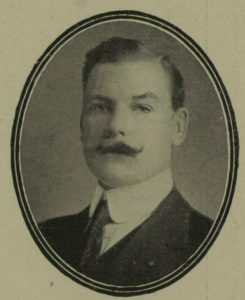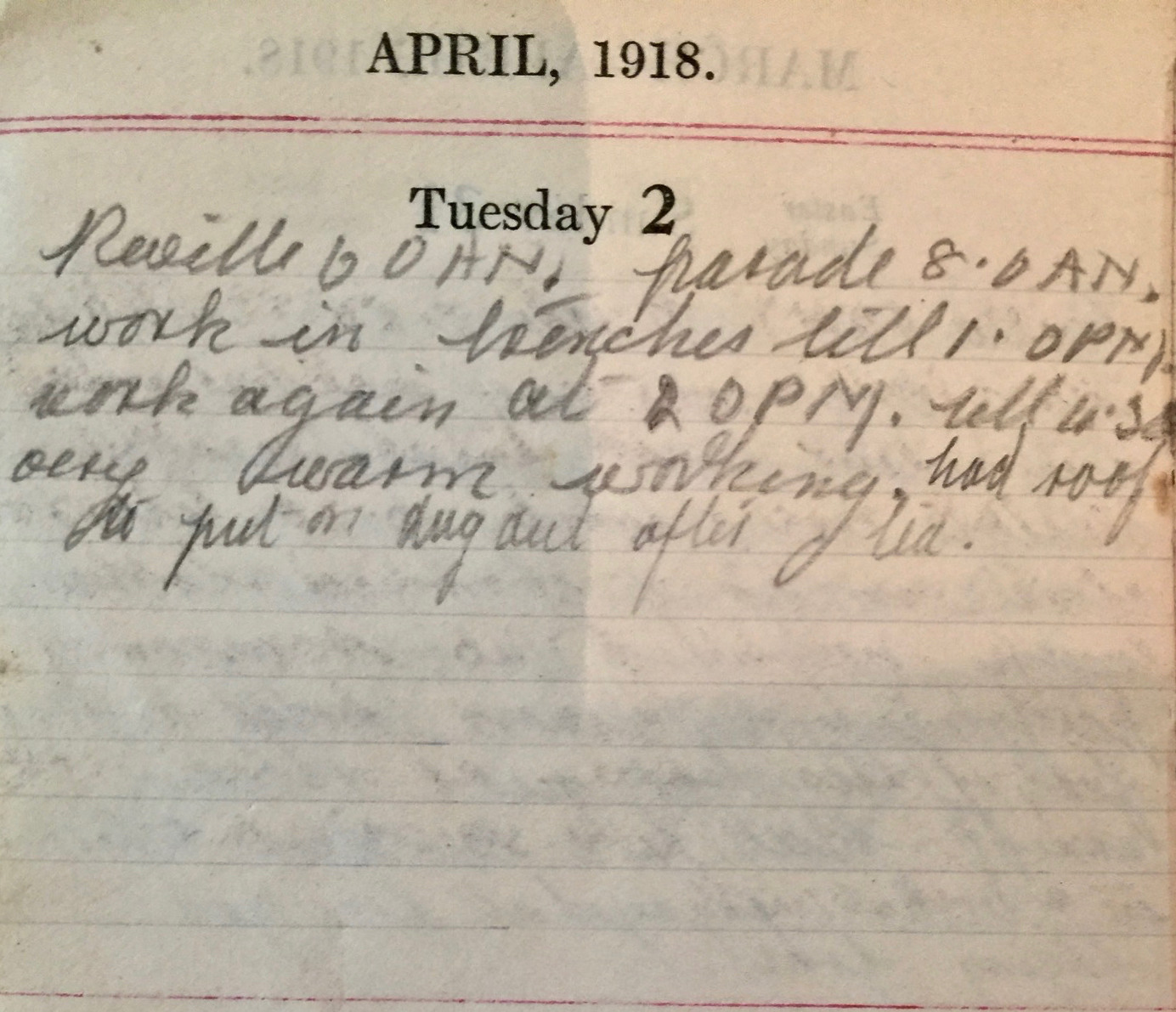Tuesday April 2nd, 1918
Reveille 6am, parade 8am. Work in trenches till 1pm. Work again at 2pm till 4:30. Very warm working, had roof to put on dug-out after tea.
Army Estimates

The second paragraph in the Battalion’s diary today is intriguing. It seems to refer to a misquoted date that may or may not have been repeated by the Undersecretary of State for War, Ian Macpherson (Liberal MP for Ross & Cromarty), in the House of Commons.
The Army Estimates were effectively the budget in terms of manpower and expenditure. They, along with those for the Navy and the Air Services were debated and voted on in Parliament.
The debates enabled MPs to raise a variety of related topics. In February 1918 these included the BSF, brothels in France and the trial and execution of soldiers for desertion.
The discussion on the British Salonika Force was itself wide-ranging and revealed the prejudice and constraints with which the troops had to contend.¹ The speaker being described in the following paragraphs was Major Walter Waring who served in France and Salonika between 1914 and 1917 and by 1918 was part of Naval Intelligence. He was also the sitting Liberal MP for Banffshire in Scotland.º About 20% of all MP served in the Armed or Auxilliary Services during WWI.
Views of the press and the politicians on the Macedonian Campaign:
‘Major Waring … referring to the men of the Army serving in Macedonia, strongly resented the contemptuous way in which they had been referred to both in the Press and in this House. As far as he could make out anyone who served in Macedonia was looked upon as an individual who was not doing his bit… This was the impression they gained in Macedonia. A solider, however, had to go where he was sent.’¹
The health of the BSF:
‘The Army, however, was to a large extent an Army of sick men, although he [Major Waring] was glad to hear of the reduction in the number of the sick, and especially in the number of deaths. It was impossible to be for months in so unhealthy a country without feeling its deleterious effects. Very great credit was due to the untiring efforts of our sanitary and medical officers.’¹
Going on leave:
‘As to the home leave he submitted that the 21 days leave in 18 months to which the soldiers were entitled was not much to look forward to, but that if it had been regular and certain it would not have been so bad. Unhappily it had never been regular or certain; yet the French apparently could send a continuous stream of invalids home. It was said that our difficulties were due to want of transport, but he thought that what the French were able to do we also ought to be able to do.’¹
13th (Service) Battalion War Diary – 2nd April 1918 – Saida
The Battalion commenced work on Le Commandant trenches, and screening an alternative track from the eastern fork of Bujuklu Ravine to Castle Valley. At present two Coys work by day on these works, and two undergo training for 4 hours. Some heavy guns have been placed just north of Castle facing Kidney Camp near the old route from Bujuklu to Pillar via the western side of Castle Hill. Should these guns be heavily shelled, this route would be most dangerous, and alternative one being constructed will be most valuable.
The following letter has been received by 12th Corps from GHQ a copy of which is republished:- ‘With reference to a statement made by the Undersecretary of State for War in the House of Commons on Feb 20th 1918 regarding the leave question of the Salonica Army, the Lieutenant General Commanding-in-Chief directs that the following extract of a telegram from the Under Secretary of State for War be communicated by unit Commanders to those under their command. This telegram was received in answer to one from the Lieutenant General Commanding-in-Chief to the War Office, to the effect that the words ‘January 1910’ had been used in place of January 1915 and that practically all men who had been abroad and had no leave since January 1915 had now been sent on leave. Telegram begins:- ‘…In my statement on Army Estimates the date I gave on reading extract from your telegram was January 1915. Regret that this was misrepresented in certain papers. Under Secretary of State for War.’ Telegram ends.
The Lieutenant General Commanding-in-Chief desires to assure all ranks that he is in full sympathy with them on the question of leave, and is doing his utmost to increase the numbers going.
Baths are allotted to the Battalion on Tuesday, Thursday, Friday and Saturday. These are in Bujuklu Ravine. All ranks will wear Box Respirators when moving out of camp. Steel helmets will be worn by all ranks on all occasions when out of camp, except when proceeding south of Table Hill. Divisional letter and sketch map re work on Commandant Received (Appendix No I). It has been decided by GS that Pack Carriers for Lewis Magazines are to be retained by Infantry and Pioneer Battalions.
Fifty seats per night have been allotted to the Battalion for the Divisional Theatre at Rates on the 3rd, 4th & 5th April 1918 (NB for Effective Strength Return see Appendix No 2)
References & Further Reading
º Major Walter Waring in Wikipedia, image may be subject to copyright
¹ ‘The Army in Macedonia’ in The Times, February 21, 1918, Page 10


